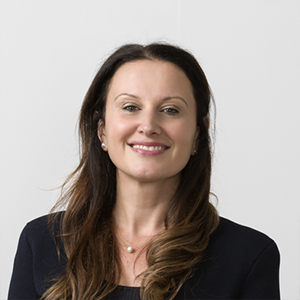
Rita Younan
Rita Younan is a clinical psychologist and advanced ST supervisor- trainer, and director of Schema Therapy Institute Australia. Rita is currently the training co-ordinator for the International Society of Schema Therapy and part of the executive board that represents the society. Rita has provided training, treatment and conducted research in Schema Therapy. Her area of interest include attachment theory, the neurobiology of attachment, trauma and personality pathology. Rita has presented as various international conferences and is actively involved in the Schema Therapy community. Rita has been a clinical psychologist seeing patients with varying presentations for almost 20 years.
Building Mastery in Group Schema Therapy: Applying Deliberate Practice to Core Interventions
Co-Presented with Joan Farrell & Paul Kasyanik
This in-conference workshop will present the application of the deliberate practice model to three of the most challenging interventions of group schema therapy (GST): maintaining a safe space, setting limits on disruptive overcompensating modes, and managing conflict, and provide attendees with opportunities to practice these skills using the format of the deliberate practice model. Deliberate Practice is a breakthrough approach in building mastery of clinical skills. GST presents therapists with additional challenges and complexity as the needs, schemas and modes of a group of patients must be simultaneously considered and safety and connection for all must be established and contained. One of the particular challenges of GST is management of the naturally occurring stages of a group’s process described by Yalom (2019). These can be summarized as: forming, storming, and norming. In contrast to the interpersonal process model of group therapy, which allows these stages to develop in an uncontrolled manner to increase emotion, in GST the therapists either facilitate or manage the stage to provide and maintain the safety and connection required to reach and heal the Vulnerable Child mode (VCM). In the treatment of personality disorder patients allowing anxiety or other distress to increase unchecked would trigger maladaptive coping modes to appear in some group members, often derailing or creating ruptures in the safety and connection of the group. The importance of managing the storming phase and group conflict is supported by a large randomized controlled trial of GST for borderline personality disorder. In the related qualitative study, patients reported that when aggression from other members was not firmly and confidently managed by the therapists, the ruptured connections and violation of safety of the group that occurred negatively affected their ability to do Vulnerable Child mode work and often led to premature dropout. We have observed as supervisors that setting limits is one of the more difficult skills for Schema therapists to learn and feel comfortable with. For this reason, we decided to apply the deliberate practice model to the skills of maintaining safety, limit setting, and managing conflict to allow participants to practice within the supportive structure of deliberate practice. The majority of the workshop time will be spent practicing in triads. Using the deliberate practice model, each participant will take a turn playing the role of a client, therapist, or supervisor. Three roleplay sessions will be conducted so that participants will have a turn in each role. The participant playing the therapist will form their response based upon the criteria of the micro skill. After this brief intervention, the client will give feedback followed by the supervisor role participant’s feedback about whether the criteria of the micro-skill were met and suggestions about how to improve the response. The ideal therapist response will be read at this time and used for discussion. The therapist in the roleplay will then have a second chance to respond to the repeated client’s statement using the feedback and discussion.

